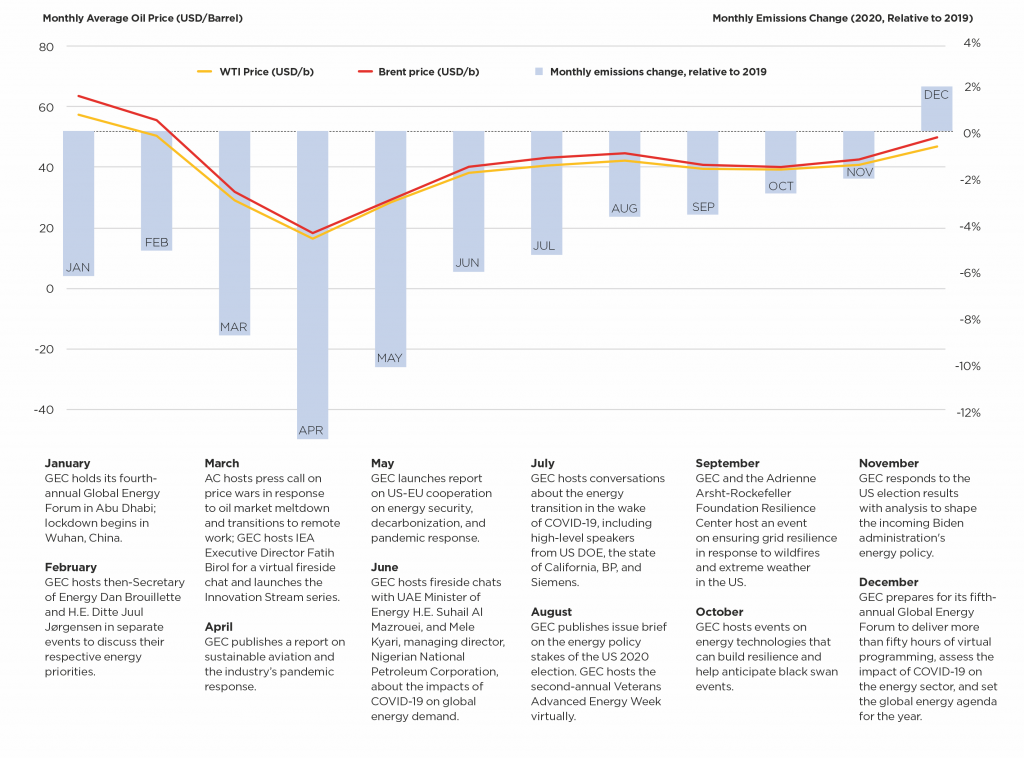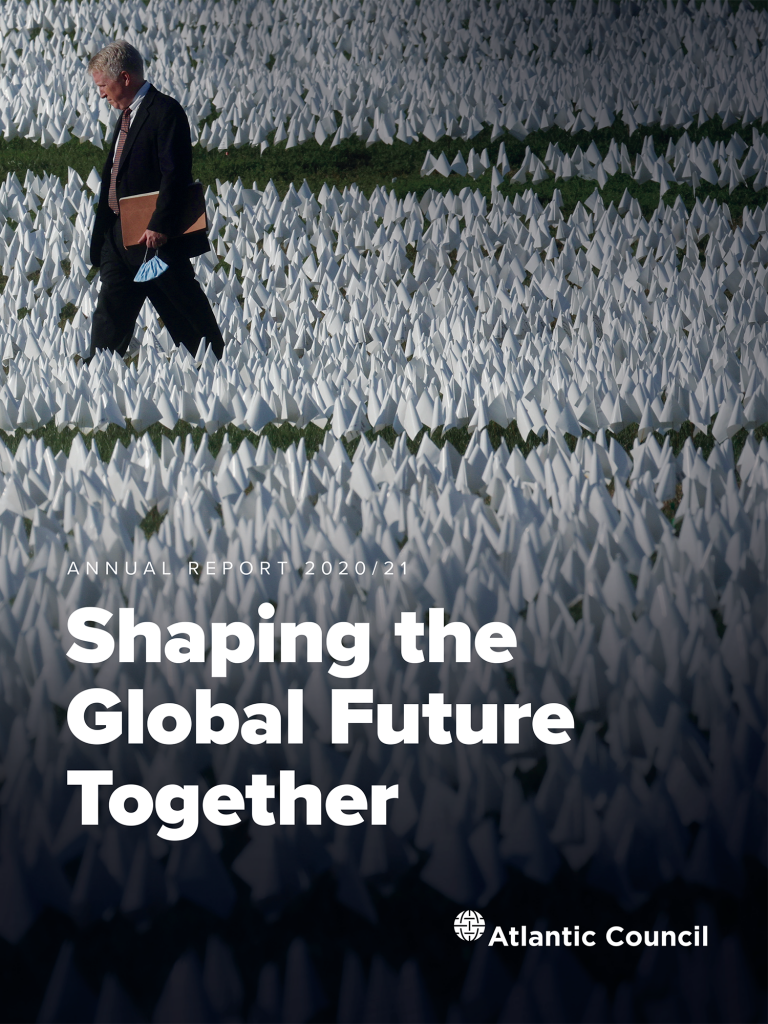Promoting energy security alongside partners to devise pragmatic solutions to the challenges of the energy transition.
The Global Energy Center (GEC) promotes energy security by working alongside government, industry, civil society, and public stakeholders to devise pragmatic solutions to the geopolitical, sustainability, and economic challenges of the changing global energy landscape. The center’s work focuses on three crosscutting themes: energy security, geopolitics, and markets; understanding and managing the energy transition; and climate change and advanced energy.
Throughout 2020, the GEC was a leader in helping its global audience understand the implications of the COVID-19 pandemic for the energy system. The center’s programming included rapid reactions to an oil market in crisis, explaining the trends shaping the postpandemic energy landscape, and highlighting the global opportunities to use economic recovery in support of shared climate goals.
The GEC once again leveraged best-in-class convening power through virtual programming that highlighted the leaders and experts shaping the global energy transition. Speakers hosted by the GEC in 2020 included: then-Department of Energy Assistant Secretary for the Office o Nuclear Energy Rita Baranwal, International Energy Agency Executive Director Fatih Birol, now-Secretary of Transportation Pete Buttigie, Eni Chief Executive Officer Claudio Descalzi, Senator Tammy Duckworth (D-IL), now-Homeland Security Advisor Elizabeth Sherwood-Randall, and Pulitzer Prize-winning author Daniel Yergin. The GEC also launched a new short-form web series, “EnergySource. Innovation Stream,” which focuses on game-changing energy technologies.
The GEC continued to provide expertise in energy security, oil and gas markets, and the geopolitics of the energy transition. Its The Role of Oil and Gas Companies in the Energy Transition report received more than 29,000 page views, making it the most-viewed report at the Atlantic Council in 2020. The center also completed its European energy security project with the publication of a final report, European Energy Security and the Critical Role of Transatlantic Energy Cooperation. Additional publications focused on decarbonizing the aviation sector, opportunities for US-Japan clean energy cooperation, and downstream oil theft. In June, the center’s nuclear energy policy work was recognized in the US Senate when a bipartisan group of twenty US senators cited the GEC’s research as a key piece of their argument for including support for nuclear energy technologies in the National Defense Authorization Act.

Throughout the 2020 US election season, the GEC convened events and published an issue brief series that analyzed the implications of the election for US energy, climate, and foreign policy. On issues ranging from nuclear energy to methan emissions to minerals policy, GEC experts provided recommendations to the Biden-Harris administration on how to advance energy policies through an almost evenly divided Senate and reenter the global effort to fight climate change.
The Global Energy Center also redoubled its efforts to engage new communities and bring new voices into the policy conversation. The center ran the second year of the Veterans Advanced Energy Project and hosted the second annual Veterans Advanced Energy Summit, offering military service members and their families the opportunity to network and learn about clean energy policy. In partnership with the RBC Foundation, the GEC renewed and expanded its Women Leaders in Energy Fellowship, a one-year program that provides women energy and climate policy leaders under the age of thirty-five with unique mentorship opportunities and professional development training.
As global momentum accelerates toward increasingly robust climate action, the center will continue to play a key role in expanding the climate conversation in the United States beyond the usual suspects through its work on the national and economic security imperatives of the energy transition. The center will advance policy frameworks for key decarbonization technologies such as hydrogen, nuclear power, and carbon capture. It will shape the global conversation in the lead-up to and at COP26 in November. The GEC will also continue its work with global partners on sustainability and energy security challenges while developing a body of work on the opportunities and challenges of the energy transition in China.
Next
Read the full report

Annual Report 2020/2021
As we celebrate the 60th anniversary of our founding, the challenges we face
are daunting, but the Atlantic Council has responded with innovative and
consequential work. Here’s how we are working together to shape the global
future.
Image: An Austrian army member stands next to the logo of the Organization of the Petroleoum Exporting Countries (OPEC) in front of OPEC's headquarters in Vienna, Austria April 9, 2020. REUTERS/Leonhard Foeger




